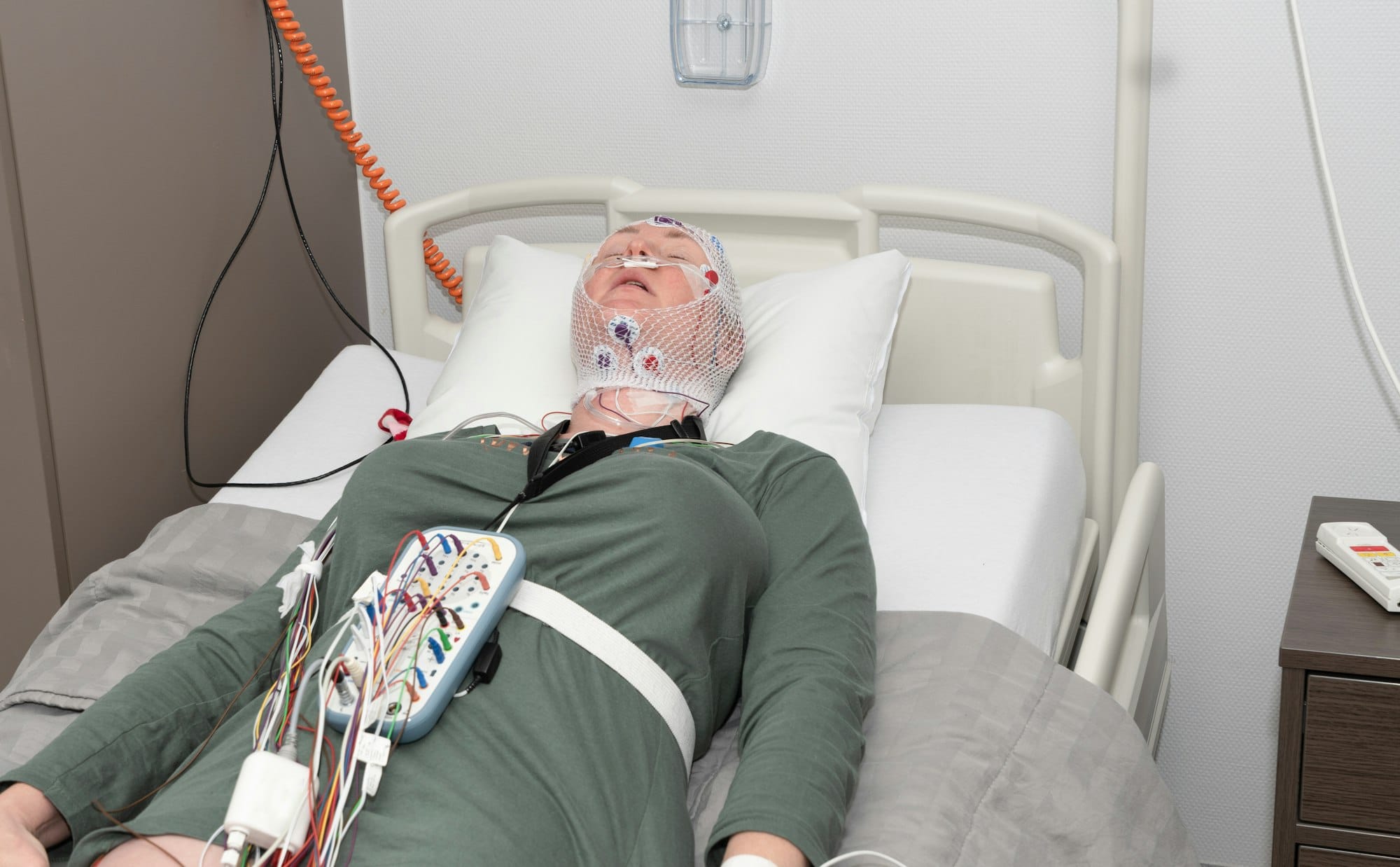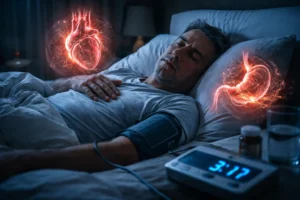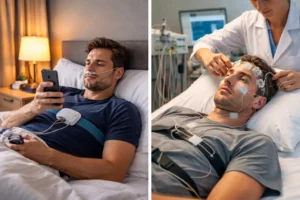Narcolepsy is a chronic neurological disorder that affects the brain’s ability to regulate sleep-wake cycles. This condition can lead to excessive daytime sleepiness, sudden sleep attacks, and other disruptive symptoms that significantly impact daily life. For those experiencing symptoms of narcolepsy, understanding the disorder and seeking proper diagnosis is crucial. In this blog, we will explore narcolepsy in detail, including its symptoms, diagnosis, and the importance of specialized clinics for testing. We will also highlight three key facilities where individuals can undergo a narcolepsy sleep study: Eastside Sleep Center, Westside Sleep Center, and Las Cruces Sleep Center.
What is Narcolepsy?
Narcolepsy is characterized by recurrent episodes of excessive daytime sleepiness (EDS), which can occur even after a full night’s sleep. People with narcolepsy may experience sudden bouts of sleep that can last from a few seconds to several minutes. These episodes can happen at any time, often at inappropriate moments, such as during conversations or while driving.
There are two main types of narcolepsy:
- Narcolepsy Type 1 (NT1): This type includes cataplexy, which is a sudden loss of muscle tone triggered by strong emotions such as laughter or surprise. NT1 is associated with low levels of hypocretin, a neurotransmitter that regulates arousal and wakefulness.
- Narcolepsy Type 2 (NT2): This type does not involve cataplexy and typically has normal levels of hypocretin. However, individuals with NT2 still experience excessive daytime sleepiness.
Symptoms of Narcolepsy
The symptoms of narcolepsy can vary widely among individuals but commonly include:
- Excessive Daytime Sleepiness (EDS): Persistent drowsiness and an overwhelming urge to sleep during the day.
- Cataplexy: Sudden muscle weakness or paralysis triggered by strong emotions.
- Sleep Paralysis: Temporary inability to move or speak while falling asleep or waking up.
- Hypnagogic Hallucinations: Vivid dreams or hallucinations that occur while falling asleep or waking up.
- Fragmented Nighttime Sleep: Frequent awakenings during the night.
If you suspect you may have narcolepsy, it is essential to consult a healthcare professional for evaluation and diagnosis.
Diagnosing Narcolepsy
Diagnosing narcolepsy typically involves a combination of medical history assessment, symptom evaluation, and specialized sleep tests. A specialist for narcolepsy will conduct thorough examinations to rule out other potential causes of excessive daytime sleepiness.
Is There a Test for Narcolepsy?
Yes, there are specific tests designed to diagnose narcolepsy effectively. The primary tests include:
- Polysomnography (PSG): This overnight sleep study records brain waves, heart rate, breathing patterns, and muscle activity while you sleep. PSG helps identify any underlying sleep disorders that may contribute to symptoms.
- Multiple Sleep Latency Test (MSLT): Usually conducted the day after PSG, this test measures how quickly you fall asleep during the day and how quickly you enter rapid eye movement (REM) sleep. The MSLT consists of several scheduled nap opportunities throughout the day.
Both tests are crucial in establishing a diagnosis of narcolepsy and determining its type.
Learn more about Narcolepsy Sleep Disorder
Tests for Narcolepsy
- Sleep Study for Narcolepsy: The PSG provides valuable information about your nighttime sleep patterns and can help identify other conditions such as sleep apnea.
- Narcolepsy Test: The MSLT assesses daytime sleepiness and helps confirm the diagnosis by measuring how long it takes you to fall asleep in a controlled environment.
Preparing for Narcolepsy Sleep Study
Before undergoing these tests, your doctor may recommend stabilizing your sleep schedule for at least one week prior to testing. Keeping a sleep diary can help track your sleeping patterns and provide valuable information during your evaluation.
Additionally, certain medications may need to be paused before narcolepsy testing to ensure accurate results. Always consult with your healthcare provider before making any changes to your medication regimen.
Where to Get Tested for Narcolepsy
If you suspect you have narcolepsy or have been referred by your primary care physician for further evaluation, it’s essential to visit a specialized clinic equipped to conduct comprehensive sleep studies. Here are three clinics where you can undergo testing:
Narcolepsy Testing in Eastside Sleep Center
Located in El Paso, Texas, Eastside Sleep Center specializes in diagnosing and treating various sleep disorders, including narcolepsy. Their team of experienced specialists utilizes advanced diagnostic tools to provide accurate assessments and personalized treatment plans.
Learn more about Eastside Sleep Center
Narcolepsy Test in Westside Sleep Center
Also situated in El Paso, Westside Sleep Center offers comprehensive evaluations for patients experiencing symptoms of narcolepsy. With state-of-the-art facilities and a dedicated team of professionals, they provide thorough assessments through polysomnography and multiple sleep latency tests.
Learn more about Westside Sleep Center
Test For Narcolepsy in Las Cruces Sleep Center
Just a short drive from El Paso in Las Cruces, New Mexico, this center focuses on diagnosing sleep disorders with precision. They offer both PSG and MSLT services in a comfortable environment designed for optimal patient care.
Learn more about Las Cruces Sleep Center
Understanding the Importance of Specialized Testing
The journey toward understanding narcolepsy begins with proper testing conducted by trained professionals who specialize in sleep medicine. A narcolepsy sleep study can reveal critical insights into your condition that might not be apparent during routine medical examinations.
Why See a Specialist for Narcolepsy?
Seeing a specialist ensures that you receive comprehensive care tailored to your unique needs. Specialists are knowledgeable about the latest advancements in diagnosing and treating narcolepsy and can provide guidance on lifestyle modifications that may improve your quality of life.
What Happens After Diagnosis?
Once diagnosed with narcolepsy, your healthcare provider will work with you to develop an individualized treatment plan. Treatment options may include:
- Medications: Stimulants or wake-promoting agents may be prescribed to help manage excessive daytime sleepiness.
- Lifestyle Changes: Implementing regular sleep schedules, taking scheduled naps during the day, and avoiding caffeine or alcohol close to bedtime can significantly improve symptoms.
- Behavioral Therapy: Cognitive behavioral therapy (CBT) may be beneficial for some patients in managing symptoms related to emotional triggers associated with cataplexy.
Living with Narcolepsy
Living with narcolepsy can be challenging due to its unpredictable nature; however, many individuals successfully manage their symptoms through appropriate treatment strategies. Education about the disorder is vital for both patients and their families so they can understand its implications on daily life.
Tips for Managing Narcolepsy Symptoms
- Establish a Consistent Sleep Routine: Go to bed and wake up at the same time each day.
- Take Scheduled Naps: Short naps throughout the day can help alleviate excessive daytime sleepiness.
- Create a Sleep-Friendly Environment: Ensure your bedroom is dark, quiet, and comfortable.
- Avoid Stimulants Before Bedtime: Limit caffeine intake in the hours leading up to bedtime.
- Educate Family and Friends: Help those close to you understand your condition so they can offer support when needed.
Conclusion
Narcolepsy is a complex disorder that requires careful diagnosis and management by specialists trained in sleep medicine. If you suspect that you or someone you know may have narcolepsy, it’s essential to seek help from qualified professionals who can conduct appropriate tests such as polysomnography (PSG) and multiple sleep latency tests (MSLT).
With three specialized clinics available—Eastside Sleep Center, Westside Sleep Center, and Las Cruces Sleep Center—you have access to expert care designed specifically for individuals experiencing symptoms of narcolepsy.By understanding this disorder better and seeking timely intervention through specialized testing, individuals with narcolepsy can lead fulfilling lives while managing their condition effectively. Don’t hesitate—reach out today if you’re experiencing symptoms related to this debilitating disorder! This blog post includes all specified keywords while providing detailed information about narcolepsy along with an emphasis on testing clinics available in El Paso and surrounding areas!
Contact us








